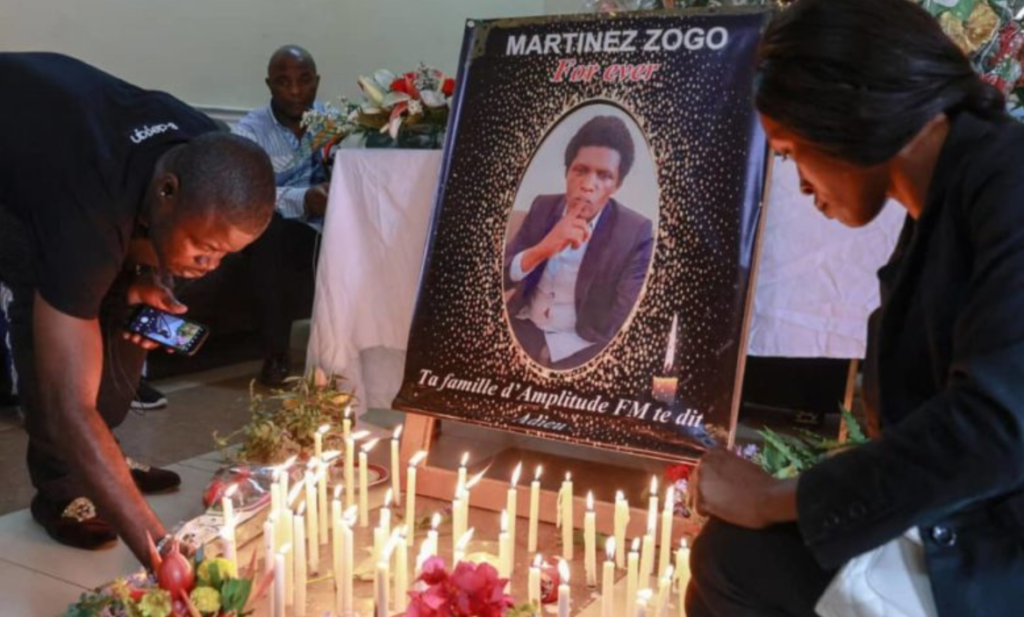By Etienne Mainimo Mengnjo
The long-awaited trial regarding the tragic assassination of Martinez Zogo, a renowned journalist and former director of Amplitude FM radio in Yaounde, began on Monday, March 25 in Yaoundé.
The trial that started on March 25 seeks to establish the connections, if any, between the 17 individuals accused and their potential roles in orchestrating, torturing, and causing the death of the journalist.

In a tense atmosphere, the four-hour session at the Yaoundé military tribunal, presided over by the President, Col. Jacques Misse Njone, assisted by two other judges, was mainly devoted to pre-trial observations and exceptions, as well as counter observations.
While some of the accused, Amougou Belinga and Police Commissioner Maxime Léopold Eko Eko, were seen in emblematic attire, others appeared in their service uniforms. Martin Savom and Bruno Bidjang were in casual attire.
The widow of the slain Zogo was also present in court, dressed in a black mourning outfit with a red headscarf. The court session began at 10:45 am with an overflow of attendees.
Addressing numerous preliminary concerns to ensure a fair trial, lawyers emphasized the importance of obtaining the entire investigation file to adequately prepare their clients’ defense. Some lawyers also requested that the trial be broadcast on radio and television to keep the entire nation informed about the proceedings.
After addressing various issues, the case was adjourned to April 15. According to the lawyers, the 17 accused individuals are in court for charges related to torture, being co-offenders, accessories before the fact of the crimes, or capital murder. If convicted, the 17 accused individuals face the possibility of a death sentence, while others could receive life imprisonment.
Salomon Mbani Zogo, also known as Martinez Zogo, was abducted on January 17, 2023, and his mutilated body was discovered in a vast piece of land a few days later. He was the host of a popular daily radio show, ‘Embouteillage,’ where he frequently addressed issues of corruption and alleged embezzlement, fearlessly questioning prominent figures by name.
The tragic death of Martinez Zogo serves as a stark reminder of the dangers and threats that journalists encounter while pursuing their work in the country. This incident further highlights the ongoing struggle for media freedoms in the country, where journalists are often targeted, harassed, and even subjected to violence for their reporting.
The case of Bibi Ngota in 2010, died in Yaounde-Kondengui maximum security prison after being arrested with three other reporters on forgery charges underscores the risks faced by journalists who dare to uncover corruption and speak truth to power.
The arrest and imprisonment of Ahmed Abba on terrorism charges in 2015 exemplify the oppressive environment in which journalists operate, where simply doing their job can lead to unjust persecution.
The brutal attack on Paul Chouta in 2019 and the subsequent arrest of Samuel Wazizi, who later met a tragic fate, underscore the grave dangers faced by journalists who dare to challenge the status quo and report on sensitive issues.
These incidents not only highlight the physical risks but also the psychological toll that journalists endure in their quest for truth and accountability. However, many have disappeared without a trace.
The continued targeting and persecution of journalists not only undermine the fundamental right to freedom of expression but also erode the pillars of democracy and transparency in the country.